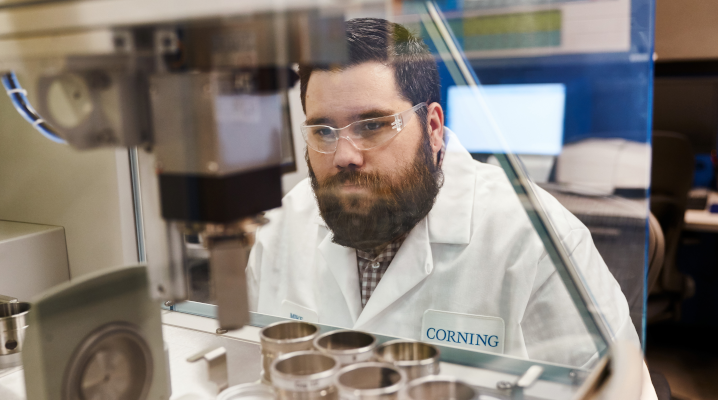 EMERGING TECH
EMERGING TECH
 EMERGING TECH
EMERGING TECH
 EMERGING TECH
EMERGING TECH
Apple Inc. has dipped into its $5 billion Advanced Manufacturing Fund and invested $250 million into Corning Inc., a New York-based manufacturer of glass for mobile devices.
The capital injection, announced today, expands a long-running relationship between the companies.
Apple previously made a $200 million investment in Corning two years ago and has used the manufacturer’s glass in every single iPhone introduced to date, as well as many iPad models. The latest iPhone 11 that debuted last week features glass not only in its display but also the back of the chassis to enable wireless charging.
Corning will pour a sizable portion of the new capital into research and development. The company will focus on engineering better equipment, production techniques and materials to support the requirements of future Apple devices.
There are no official details on exactly what technology Corning will be working on. However, given the speculation that Apple will launch a foldable device, it’s possible the manufacturer will look to develop new flexible display materials. It wouldn’t be the only player to do so: Samsung Electronics Co. Ltd. is reportedly considering to fit future foldable handsets with a new type of glass that is only 3% as thick as the glass used covering current smartphones.
“We’re proud of what we’ve achieved through our collaboration with Apple, and excited by the new opportunities this additional investment creates,” Corning Chief Executive Officer Wendell Weeks said in a statement. “This Advanced Manufacturing Fund award will allow us to develop groundbreaking new glass innovations, while also expanding our manufacturing capabilities.”
Apple has to date spent about $1 billion of the $5 billion allocated to the Advanced Manufacturing Fund. Another major beneficiary of its supply chain investments is Finisar Corp., which makes the tiny lasers that power the iPhone’s Face ID login system and Portrait photography mode. Finisar received $390 million from Apple in 2017 and went on to be acquired for $3.2 billion a year later.
The iPhone maker’s investments in parts makers accomplishes more than just improving future access to needed components. The strategy also gives Apple more say about the direction and decisions of the suppliers it backs, influence that can be highly valuable in the ultracompetitive mobile industry.
The same dynamic lies behind the $3.1 billion deal that Qualcomm struck with Japanese electronics marker TDP Corp. on Monday. The chipmaker is acquiring TDP’s minority stake in RF360 Holdings Singapore Pte. Ltd., a joint venture they set up three years ago to make wireless networking parts for mobile devices. Qulacomm relies on RF360’s technology to power the modem chips and antenna it sells to handset makers.
Support our mission to keep content open and free by engaging with theCUBE community. Join theCUBE’s Alumni Trust Network, where technology leaders connect, share intelligence and create opportunities.
Founded by tech visionaries John Furrier and Dave Vellante, SiliconANGLE Media has built a dynamic ecosystem of industry-leading digital media brands that reach 15+ million elite tech professionals. Our new proprietary theCUBE AI Video Cloud is breaking ground in audience interaction, leveraging theCUBEai.com neural network to help technology companies make data-driven decisions and stay at the forefront of industry conversations.